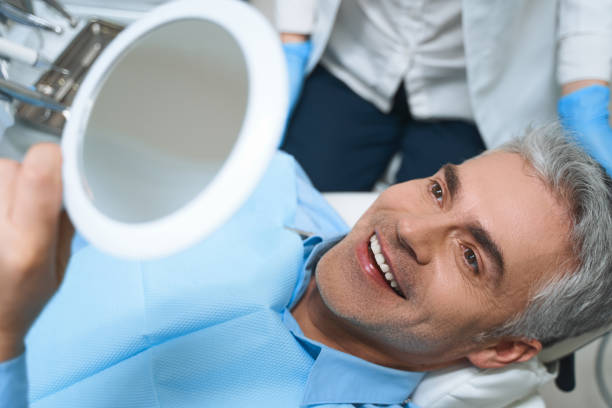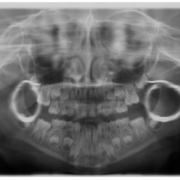Magnetic resonance imaging (MRI) is a non-invasive diagnostic tool that uses magnetic fields and radio frequency signals to produce images of different tissues or organs. MRI is often used for diagnosing brain and spine cancer, spinal cord lesions, arteriovenous malformation, and other types of brain and spine pathology. As such, you may be wondering if dentists ever use MRI scans. No, dentists do not use MRI scans in their day-to-day practice; however, they can refer patients who need MRIs to specialists who have the equipment for these scans. Here’s why. Dentists need a non-invasive way of detecting any potential infections beneath the gums so they can recommend treatment before it reaches a more advanced stage. This is where an MRI scan comes in handy because it can detect inflammation or infection at its earliest stages. Dentist use dental scan to examine the teeth and bone in mouth.
Why do dentists refer patients to MRI?
MRI scans can detect illnesses and other issues beneath the surface of the skin. For example, if a patient is experiencing pain in their jawbone, an MRI scan will help the dentist pinpoint the exact cause of the pain. Dental infections can lead to more serious health problems, including heart disease and kidney failure. That’s why dentists recommend that patients who are experiencing dental pain or have other symptoms of infection receive an MRI scan.

Dentists can refer patients to an MRI scan if one of their teeth is infected or if they suspect a cyst or tumor in the mouth. In addition, dentists refer patients to MRI if they are experiencing jaw pain from TMJ (temporomandibular joint disorder), if they have had oral surgery or if they have a condition that affects their salivary glands, gums, or teeth.
What is an MRI scan and how does it work?
MRI stands for magnetic resonance imaging. To take an MRI, you lie on a table inside a large magnet. The magnet creates a powerful magnetic field around you that is strong enough to make your nuclei (ions) align with each other. The MRI machine then uses radio waves to change the alignment of your nuclei. Once they are no longer aligned, they emit a tiny radio signal that is picked up by sensors in the machine.

The sensors send the information to a computer that creates a picture of your body. The MRI machine is very strong, but it does not pick up metal. That is why you will have to leave all jewelry, coins, and keys at the front desk. You will also have to remove any clothing that might have metal in it, such as zippers or buttons.
Do dentist use MRI scans?
MRI scans are used to detect illnesses or changes in the body’s tissues. Some of the conditions that may require an MRI scan include:
- Arthritis
- Brain tumor or cyst
- Broken bone
- Cancer
- Dental infection
- Heart disease
- Kidney failure
- Liver disease
- Nerve damage
- Stroke
- Tumor
What are the advantages of an MRI exam?
The scans are non-invasive, safe, and do not expose the patient to radiation. All you have to do is lie still on the examination table while the machine scans the body part in question. MRI scans are highly accurate, which means they do not show false positives, which can happen with other types of scans.
Disadvantages of an MRI exam?
- the scans are expensive and not all health insurance companies cover the cost of an MRI exam.
- MRIs are not recommended for people who have pacemakers or other implanted metallic devices. People with certain types of cancers that have spread to other organs might not be able to have an MRI scan.
- Some people experience minor side effects while they are inside the machine, such as claustrophobia, anxiety, or tingling in the extremities.
Final words
The scans are important diagnostic tools for dentists and oral health providers who want to detect dental infections and other dental issues as soon as possible to prevent serious health problems. However, due to their high cost, dentists often recommend patients take an MRI scan rather than perform multiple dental X-rays, which are cheaper and provide a less accurate picture of dental issues.






